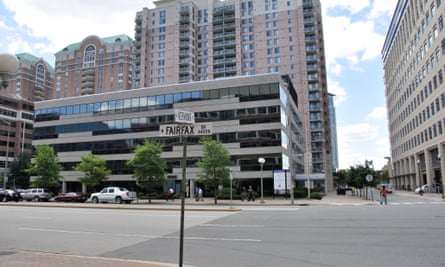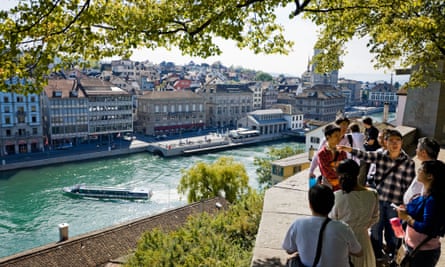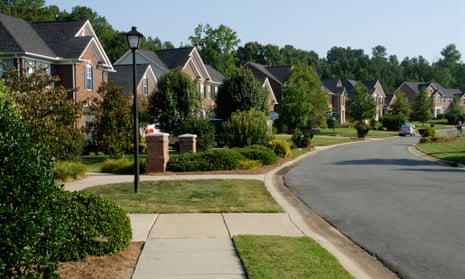New York senator Kirsten Gillibrand created a minor kerfuffle in her new book when she described Arlington, Virginia as a “soulless suburb”. In the Washington Post, Ben Adler considered her subsequent apology by noting that although Arlington does a lot of things right, she didn’t need to say sorry, because Arlington is, indeed, soulless and boring.
Gillibrand isn’t the first to insult cities for dullness. Earlier this year Rio de Janeiro’s mayor Eduardo Paes picked on another favourite target: “I don’t want to compare my city to Zurich,” he said. “Thank God we’re not that boring.” Melbourne’s mayor has been even more brutal about Adelaide, saying it “has so little going for it that it should be shut down”.
The suburbs generally have long been derided for their soullessness. Interestingly, that refrain hasn’t changed even as many of the traditional critiques, such as suburbs being too white, have been undermined. (Arlington’s non-white population is 36% and growing, while the core city in Washington DC is actually getting whiter.)
Yet these places remain popular. Boring suburban Arlington is growing at a faster rate than edgy urban DC. Since 2010, US suburbs have accounted for 72% of population growth in major urban areas, and many of the fastest-growing core cities are those in sprawling metros like San Antonio (up 56,000) and Charlotte (up almost 39,000). Why are so many people moving to places that are apparently so dull?

Perhaps it’s because “soulless” and “boring” are to some extent judgmental code words for “stuff I don’t like.” Sophisticated urbanites tend to look down on much of suburban life. But I suspect many suburbanites find downtown obsessions – contemporary art, say, or elaborate ways of preparing coffee – equally tedious. Why isn’t their thumbs-down verdict on urban pretentiousness just as valid?
When I first started working in Houston, I thought it was my personal definition of hell, starting with the terminally long drive from the airport through untold miles of ageing sprawl. But obviously lots of people love it, as its population continues to soar. After spending a bit of time there, I came to appreciate some of its charms and attributes, which were different from those I’d grown accustomed to in Chicago. I didn’t move to Houston permanently, but I can see that it works for those who did. Why not let them go their own way? Better that the people who love what Houston has to offer move there and enjoy it than stay in a walkable urban environment like Chicago and try to change it.
Those of us who love urban areas’ walkability, variety and novelty often have a tendency to universalise – not to say sacralise – our values and tastes. But in an ever more diverse world, different people are going to have different ideas about the good life. We need to be more tolerant of those who make different choices. (In Arlington you can’t even argue that the car culture is killing the environment, since as Adler notes they’ve focused much more on transit and density than your average place). Some people like stability, predictability, rootedness and a lot of what suburbs have to offer. There’s nothing wrong with that. We frequently fail to recognise that our own personal preferences are in most cases just that. And too often in urbanist discussions, that means white hipster preferences.
As a result, we can end up doing a poor job of developing and selling pro-urban policies, even within the city. Black neighbourhoods in Portland have seen bike lanes as tools of displacement, not a transportation option, for example. And the local NAACP opposed Cincinnati’s streetcar project. It is easy to simply assume everyone else shares your values and tastes – or that if they don’t, they should. This can become smotheringly conformist, such as in supposedly “tolerant” Portland, where chefs come to blows over pigs that are considered insufficiently local. Some supposedly exciting locales are in danger of becoming parodies of themselves.

Others have a more subtle character. New York’s energy assaults you from every direction, while we may struggle off the top of our heads to immediately describe the character of cities in say, Ohio. But actually visit Cincinnati, Columbus and Cleveland and it’s instantly apparent how different they are. It’s the same with the towns of northern England, and indeed many places around the world. As with people, sometimes cities take a while to open up and get to know. Too often we fail to give them that chance.
What’s more, to say a place is boring is to implicitly acknowledge that it’s getting the basics right. Getting your water shut off in Detroit certainly adds soul and excitement to that city, but I’m sure it’s an experience most residents would like to forgo. Cities can’t truly make a name for themselves as merely a “me-too” collection of attributes that everyone else is doing. But the uniqueness of a place comes on top of a foundation of getting the basics right. You can’t have the sizzle without the steak.
Unfortunately, part of what drives people to choose so-called “soulless” cities is that they excel in the basics, like reasonably priced housing, policing or schools. DC’s violent crime rate is 10 times higher than in “soulless” Arlington; “boring” Zurich ranked seventh in Monocle’s 2014 quality of life survey. No amount of artisanal chocolatiers or challenging art can make up for failing to give your children a crime-free walk to school. Cities would be well-served by putting as much focus on getting vanilla right as they do in creating those exotic flavours so many of us love. The boring parts of cityhood are just as important as the sexy ones.
